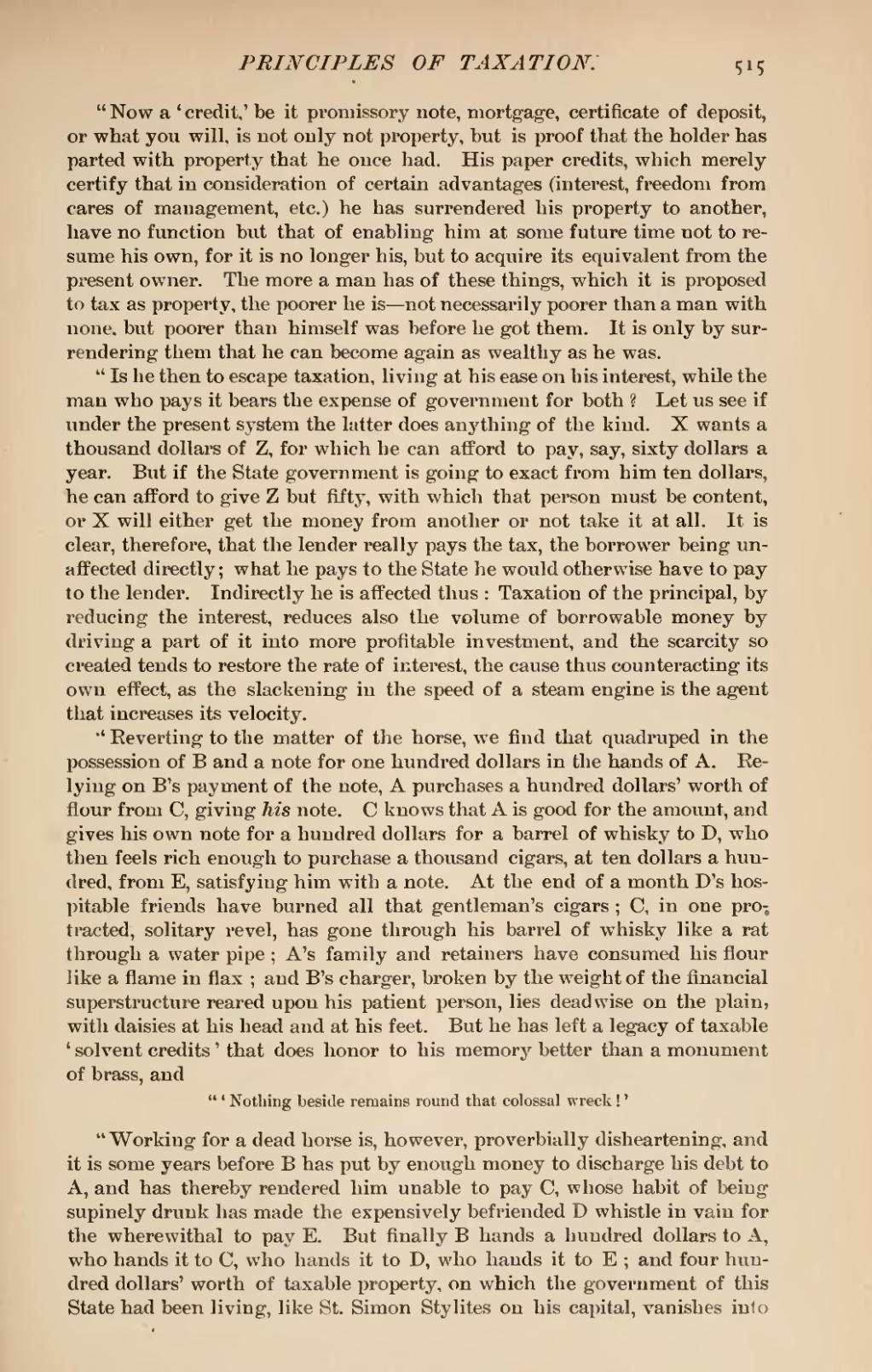"Now a 'credit,' be it promissory note, mortgage, certificate of deposit, or what you will, is not only not property, but is proof that the bolder has parted with property that he once had. His paper credits, which merely certify that in consideration of certain advantages (interest, freedom from cares of management, etc.) he has surrendered his property to another, have no function but that of enabling him at some future time not to resume his own, for it is no longer his, but to acquire its equivalent from the present owner. The more a man has of these things, which it is proposed to tax as property, the poorer he is—not necessarily poorer than a man with none, but poorer than himself was before he got them. It is only by surrendering them that he can become again as wealthy as he was.
"Is he then to escape taxation, living at his ease on his interest, while the man who pays it bears the expense of government for both? Let us see if under the present system the latter does anything of the kind. X wants a thousand dollars of Z, for which he can afford to pay, say, sixty dollars a year. But if the State government is going to exact from him ten dollars, he can afford to give Z but fifty, with which that person must be content, or X will either get the money from another or not take it at all. It is clear, therefore, that the lender really pays the tax, the borrower being unaffected directly; what he pays to the State he would otherwise have to pay to the lender. Indirectly he is affected thus: Taxation of the principal, by reducing the interest, reduces also the volume of borrowable money by driving a part of it into more profitable investment, and the scarcity so created tends to restore the rate of interest, the cause thus counteracting its own effect, as the slackening in the speed of a steam engine is the agent that increases its velocity.
"Reverting to the matter of the horse, we find that quadruped in the possession of B and a note for one hundred dollars in the hands of A. Relying on B's payment of the note, A purchases a hundred dollars' worth of flour from C, giving his note. C knows that A is good for the amount, and gives his own note for a hundred dollars for a barrel of whisky to D, who then feels rich enough to purchase a thousand cigars, at ten dollars a hundred, from E, satisfying him with a note. At the end of a month D's hospitable friends have burned all that gentleman's cigars; C, in one protracted, solitary revel, has gone through his barrel of whisky like a rat through a water pipe; A's family and retainers have consumed his flour like a flame in flax; and B's charger, broken by the weight of the financial superstructure reared upon his patient person, lies dead wise on the plain, with daisies at his bead and at his feet. But he has left a legacy of taxable 'solvent credits' that does honor to his memory better than a monument of brass, and
" 'Nothing beside remains round that colossal wreck!'
